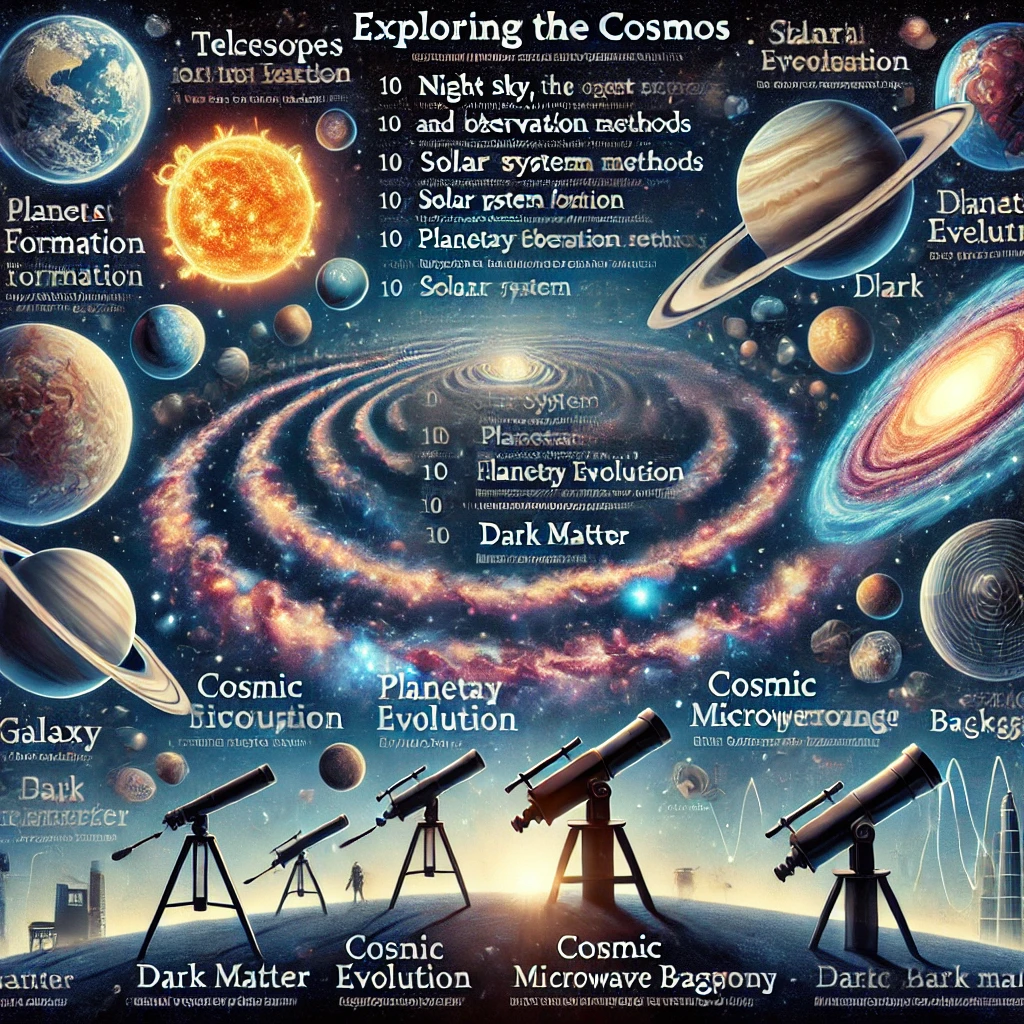Exploring the Cosmos: Year 10

About Course
Course Overview: Embark on a captivating journey through the universe in this Year 10 Astronomy course. Uncover the mysteries of celestial objects, delve into astrophysical concepts, and engage in hands-on projects to deepen your understanding of the cosmos.
Course Content
Lesson 1: The Night Sky and Celestial Objects
-
Lesson 1: The Night Sky and Celestial Objects
Lesson 2: Telescopes and Observation Methods
Lesson 3: The Solar System’s Formation and Structure
Lesson 4: Planetary Geology and Space Missions
Lesson 5: Solar Properties and Sunspots
Lesson 6: Stellar Evolution and the Hertzsprung-Russell Diagram
Lesson 7: Galaxy Types and Clusters
Lesson 8: Dark Matter and Cosmic Microwave Background
Lesson 9: Black Holes and Neutron Stars
Lesson 10: Exoplanet Discoveries and Habitability
Lesson 11: Supernovae and Stellar Explosions
Lesson 12: Advanced Observational Techniques
Lesson 13: Big Bang Theory and Cosmic Inflation
Lesson 14: Space Exploration and Future of Astronomy
Lesson 15: Stellar Observation and Data Analysis
Lesson 16: Planetarium Creation and Celestial Events
Student Ratings & Reviews

No Review Yet